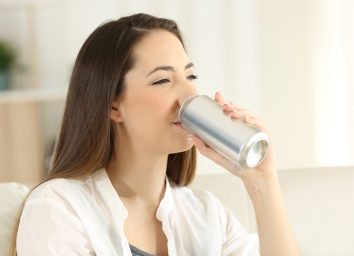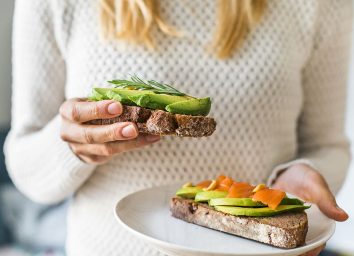6 Worst Drinking Habits For Your Liver, Says Dietitian

Your liver is an unsung hero of your body when supporting your health. From detoxification to storing nutrients to filtering your blood, your liver holds a lot of responsibility for keeping you healthy. And while many people don’t have liver health at the forefront of their minds when they set health goals, keeping this organ healthy is one of the most important things you can do if you want your body to keep functioning properly.
Certain dietary and lifestyle choices can help keep your liver health in check, including maintaining a healthy weight, participating in physical activity, and including fiber in your diet. And when it comes to drinking habits, certain choices can, unfortunately, wreak havoc on your liver health over time.
If you are focused on keeping your liver health in tip-top shape, focusing on certain drinking habits is one step to success. If you are embarking on a liver health journey, here are six of the worst drinking habits for your liver. Read on, and for more on how to eat healthy, don’t miss The #1 Best Juice to Drink Every Day, Says Science.
You are drinking alcohol frequently.

Your liver plays an important role in breaking down alcohol. But if you are drinking more alcohol than what this organ can handle, it can slowly cause damage.
Even over a short amount of time, your liver can experience fatty deposit build-up after excessive drinking, and it can progress to even worse effects over time.
It doesn’t matter if you are a wine aficionado, a whisky lover, or a beer guzzler, as alcohol will cause damage to the liver no matter what the source is. The key is to limit your alcohol consumption to a maximum of 1 alcoholic drink per day for women and two drinks for men. Of course, if you skip the alcohol altogether, that is even better!
You opt for soda with added sugars.
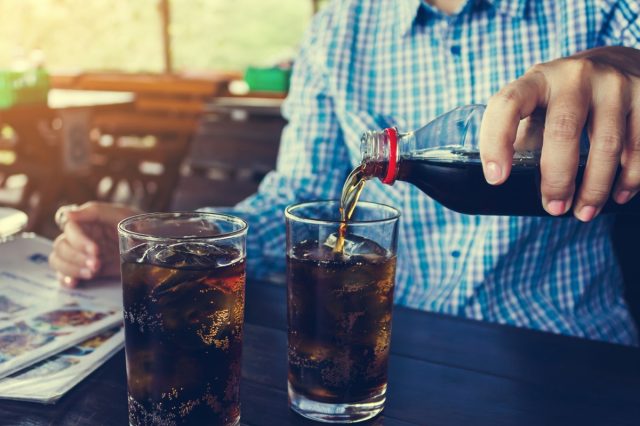
Including too much sugar in your diet can cause the liver to experience fatty buildup, leading to some unsavory effects when it comes to liver function. Regular sodas are known as a sugar bomb, and data shows that regular sugar-sweetened beverage consumption was associated with a greater risk of fatty liver disease, particularly in overweight and obese individuals. The good news is that diet soda intake was not associated with fatty liver disease measures.
You are skipping drinks that contain antioxidants.
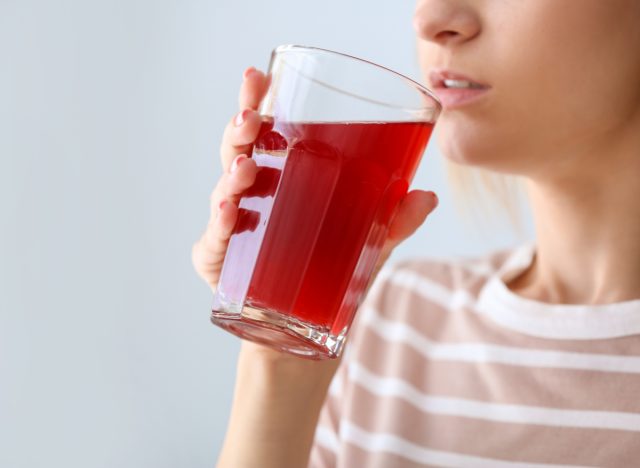
100% fruit juices, particularly pomegranate and orange juice, contain polyphenols, which can reduce oxidative stress and play a role in protecting the liver from developing fatty liver disease. In fact, results from a study showed that those who drank pomegranate or orange juice every day for 12 weeks experienced improved markers of liver function and total antioxidant capacity, meaning that this simple act may support liver health.
READ MORE: The #1 Best Antioxidant Drink, Says Dietitian
You lean on energy drinks for a boost.
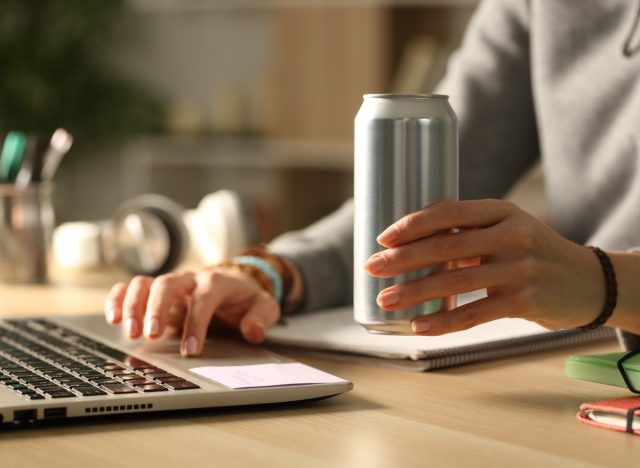
Energy drinks are loaded with ingredients that promise to give you loads of energy. But downing these drinks too often has been linked to acute liver injury. Remember that caffeine is unlikely to cause liver injury, so coffee and tea appear to be ok. The concern comes into play when caffeine energy drinks are consumed in excess, thanks to the high quantities of caffeine, sugar, and other ingredients that, in combination, are not super liver health-friendly.
RELATED: 12 Dangerous Side Effects of Energy Drinks, According to Science
You drink whole milk instead of low fat.
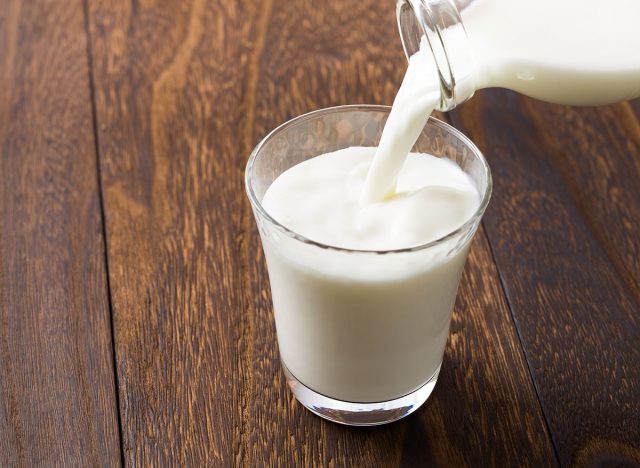
According to data published in the Journal of Clinical Endocrinology and Metabolism, consuming too much saturated fat isn’t doing your liver any favors, as overeating saturated fat promotes fat accumulating in your liver. One cup of whole milk contains 4.5 grams of saturated fat, which is around 20% of an adult’s daily needs. Swapping your whole milk for low fat or fat-free versions can help you reduce your saturated fat intake, and possibly help give your liver some extra love if you are a milk drinker.
You aren’t drinking enough water.
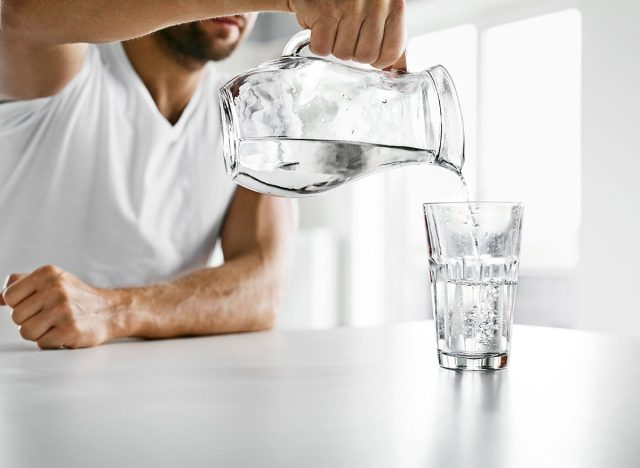
Sure, the suggestion to drink water isn’t glamorous, but including old-fashioned H2O in your diet can help naturally support your liver health.
And recent data shows that a higher water intake is linked to a lower risk of experiencing non-alcoholic fatty liver disease, highlighting just how impactful drinking water can be for your liver health.

